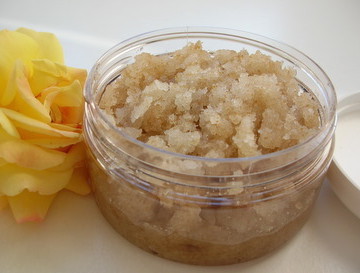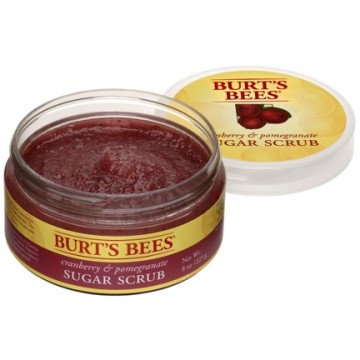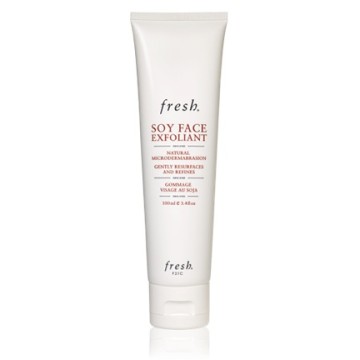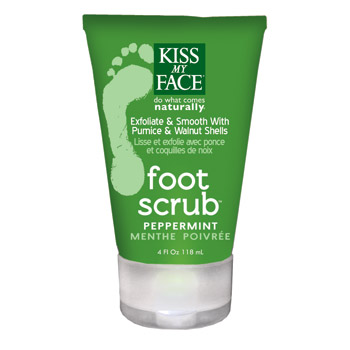Exfoliating on a regular basis is an important part of any beauty routine. The ritual of sloughing off rough, dry skin from face to heels can help maintain a perpetually glowing and soft complexion. Plus, there’s something intensely satisfying in the mere idea of scrubbing away the impurities that build up daily from being in the outside (and inside) world, even if the results aren’t immediately visible. During winter and summer, it’s especially important to exfoliate as extreme changes in temperature can cause increased dryness (my hands tend to split at the first blast of heat or air conditioning).
The thing about exfoliating is that it has to be gentle, otherwise it can have adverse effects on the skin. Exfoliating scrubs with very large or rough particles–the ones that feel less like super-fine Bermuda sand and more like coarse pebbles–do more damage than good by tearing too deep into the surface of the skin. This can lead to more dryness or even an increased production of oil, as the skin attempts to repair itself.
One way that cosmetic companies have tried to make their products more appealing, and effective, is by using more uniformly sized and shaped plastic beads (aka “microbeads”) in scrubs for the face and body. They’re commonly named on the ingredient list as “polyethylene.” But emerging research has shown that these beads eventually find their way into the ocean and freshwater, causing major damage in aquatic ecosystems and all along the way as water moves through every step of the food chain: According to the U.N. Environment Programme, each year plastic waste causes $13 billion in damage to marine life. In 2012, the nonprofit 5 Gyres conducted a study of the Great Lakes that exposed 600,000 microbeads per square kilometer in some samples. And with the average face product containing 300,000 of these beads, it’s easy to see how the pollution can grow exponentially with each individual’s use.
This past June, Illinois was the first state to ban products with plastic microbeads. New York, California, Ohio, and New Jersey are also moving toward similar legislation in the near future.
Unilever (Dove, Vaseline, and Ponds) and L’Oreal have already expressed a commitment to removing the plastic microbeads from their products.
Take a look at the exfoliating products you have in your bathroom and see if they contain polyethylene–if not, then good for you. If so, the next time you go shopping, take an extra few minutes to read the ingredients label on a new product without it. It’s worth the splurge: The environment, and your face, will thank you.
Here are some polyethylene-free scrubs to restock your vanity with:
For body
Burt’s Bees Cranberry & Pomegranate Sugar Scrub, $13
Fresh, Soy Face Exfoliant, $42
For feet
Kiss My Face, Peppermint Foot Scrub, $8.95
Also see: Are Charcoal Beauty Products Safe?
DIY Lavender Coconut Body Scrub
Also by Jen: Minimalist Challenge: How I Live
__
Photos: Anita Forster; burtsbees.com; fresh.com; kissmyface.com








